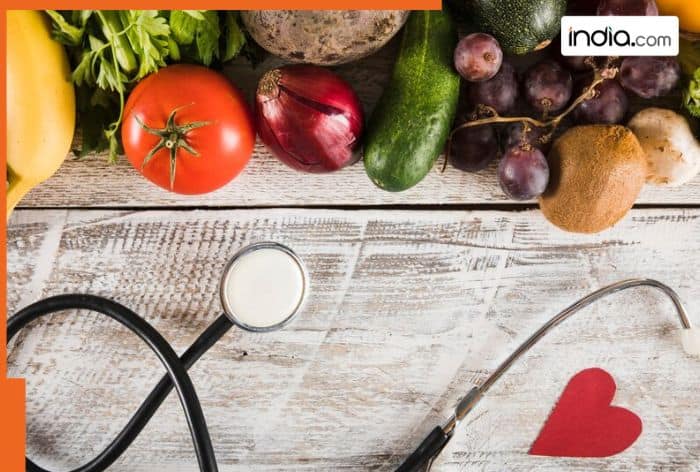Heart needs to function and pump the blood to all body parts for optimal body function. Here is meal plan for better recovery post heart attack.

Heart is responsible for blood flow, oxygen flow in the body. Therefore, keeping it healthy is the cardinal. Heart attack cases have been on a steep rise and it no more is an age related issue. Recovering from a heart attack is a critical time when dietary choices can significantly impact long-term heart health. Hence, adding right proportion of nutrients, healthy fats and inculcating healthy dietary practises is imperative.
6 foods for better heart health recovery
- Leafy Greens: Leafy greens like spinach, kale, and Swiss chard are packed with vitamins, minerals, and antioxidants. They are low in calories and high in fiber, making them excellent for heart health. Leafy greens contain vitamin K, which helps protect arteries, and other nutrients that can help lower blood pressure. Incorporating a variety of leafy greens into salads, smoothies, or as side dishes can enhance your recovery.
- Berries: Berries, including blueberries, strawberries, and raspberries, are rich in antioxidants, particularly flavonoids, which have been linked to a reduced risk of heart disease. These fruits can help lower blood pressure and inflammation while improving cholesterol levels. Enjoy berries as a snack, in smoothies, or added to yogurt and oatmeal for a delicious heart-healthy treat.
- Whole Grains: Whole grains such as brown rice, quinoa, oats, and whole wheat bread are essential for heart health. They are rich in fiber, which helps lower cholesterol levels and stabilize blood sugar. Whole grains also provide important nutrients like B vitamins, iron, and magnesium. Replacing refined grains with whole grains in your diet can support heart health and aid in weight management.
- Nuts and Seeds: Nuts and seeds, including almonds, walnuts, chia seeds, and flaxseeds, are excellent sources of healthy fats, protein, and fiber. They contain omega-3 fatty acids, antioxidants, and various vitamins and minerals that support heart health. Regular consumption of nuts and seeds has been linked to lower cholesterol levels and a reduced risk of heart disease. A small handful as a snack or added to meals can be beneficial.
- Avocado: Avocado is a nutrient-dense fruit rich in monounsaturated fats, which are heart-healthy fats that can help lower bad cholesterol levels. It also contains potassium, which helps regulate blood pressure. Adding avocado to salads, smoothies, or whole grain toast can provide a creamy texture and enhance flavor while promoting heart health.
- Fatty Fish:Fatty fish, such as salmon, mackerel, sardines, and trout, are rich in omega-3 fatty acids. These healthy fats are known to reduce inflammation, lower blood pressure, and decrease triglycerides. Omega-3s can also help prevent arrhythmias (irregular heartbeats) and reduce the risk of heart disease. Aim to include fatty fish in your diet at least twice a week for optimal benefits.
A heart-healthy diet is vital for recovery after a heart attack. Along with a nutritious diet, it’s essential to follow your healthcare provider’s recommendations and engage in regular physical activity for optimal recovery. One should always consult with a medical professional for charting out a healthy diet plan for long term heart health.


